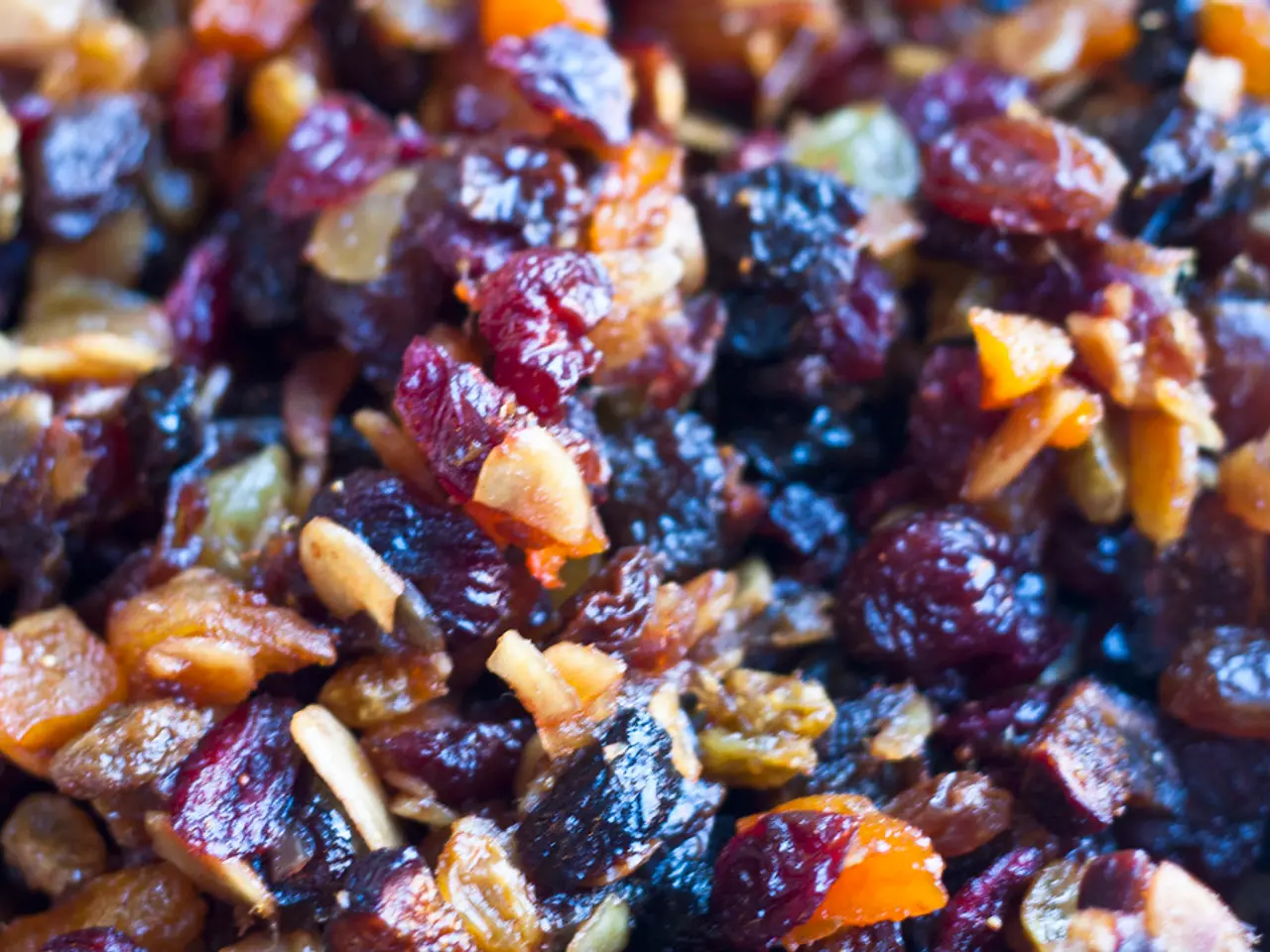Unaltered, Natural Fats and Oils in Their Purest Form
In the realm of culinary delights, fats and oils are often overlooked yet essential components that offer more than just flavor and calories. Here, we delve into some traditionally produced fats and oils that provide nourishment beyond the basics.
Bacon fat, with its distinctive smoky flavor, is best reserved for dishes where its unique taste becomes an attribute. On the other hand, clarified butter and ghee, after being slowly melted and filtered to remove milk solids, offer a fat that can tolerate higher heats up to 485 degrees Fahrenheit.
Cold-pressed nut and seed oils, rich in vitamin E, are a boon for cardiovascular health and act as antioxidants. Cod Liver Oil and High Vitamin Butter Oil are supplementary to the diet, brimming with essential nutrients like vitamins A, D, E, and K2, and omega-3 fatty acids. These are best purchased with naturally occurring vitamins still intact to preserve the sensitive omega-3 fatty acids.
Grass-fed butter, with a low smoke point of about 350 degrees Fahrenheit, is suitable for gentle cooking. The author avoids grapeseed oil, canola oil, and rice bran oil, as these oils are not traditional fats. Most grocery store lard is partially hydrogenated and produced from hogs raised in confinement, offering no vitamin D benefits.
Unrefined extra virgin olive oil is rich in phytonutrients, antioxidants, and vitamin E, but heat-sensitive and best avoided for cooking. Coconut oil is particularly rich in lauric acid, a nourishing fat only otherwise found in abundance in human breast milk.
Some standout healthy fats and oils include extra virgin olive oil (EVOO), avocado oil, and certain nut oils like walnut or hazelnut oil. These oils are rich in monounsaturated fatty acids (MUFAs), polyunsaturated fats (including omega-3s), and bioactive compounds such as polyphenols and antioxidants, which contribute to heart health, cognitive function, anti-inflammatory effects, and protection against chronic diseases.
Extra virgin olive oil (EVOO) is especially notable for its high content of oleic acid (a MUFA) and potent antioxidants like hydroxytyrosol, oleuropein, and oleocanthal. These compounds help lower LDL cholesterol, reduce inflammation, and protect cells from oxidative damage. EVOO is suitable for sautéing, roasting, and light frying without losing its health benefits, and also makes a delicious finishing oil when drizzled raw over salads, grilled fish, roasted vegetables, soups, or even fruit.
Avocado oil offers a healthy dose of MUFAs and has a higher smoke point than olive oil, making it excellent for frying and grilling while still providing nourishment beyond calories.
Nut oils like walnut and hazelnut oil provide polyunsaturated fats including omega-3s or omega-6s, supporting heart and brain health. These oils are best used as finishing oils or in dressings because their delicate flavors and nutritional compounds are best preserved raw or with gentle heating.
Proper storage is essential to maintain quality and health benefits: keep oils in cool, dark places away from heat and light to preserve antioxidants and flavor.
Raw butter offers benefits of butter and clarified butter, including food enzymes and beneficial bacteria, best used as a finishing fat. The author focuses on traditional foods and excludes any fat or oil that wouldn't have been available two-hundred years ago or that is produced through industrialized processes like hexane-extraction, genetic modification, or hydrogenization.
Virgin Coconut Oil is mildly sweet with a fragrance deeply resonant of the tropics and has a smoke point of about 350 degrees Fahrenheit, making it suited to baking and light sautéing. Raw butter contains the Wulzen factor, which may reduce joint stiffness and address age-related issues. Raw butter is difficult to find in the United States, but can be made from fresh raw cream or purchased from raw milk producers online.
Pastured Lard is a potently rich source of vitamin D, second only to cod liver oil, and is excellent for baking, braising, and light sautéing. Pasture-raised lard is not widely available and is best obtained from local ranchers or rendered at home. The author prefers fats that offer true nourishment in the way of fat-soluble vitamins and naturally-occurring antioxidants.
Cold-pressed nut and seed oils like walnut, pumpkin seed, sesame seed, and hazelnut oils are high in omega-6 fatty acids and best used minimally as a finishing oil.
In summary, understanding the nuances of various fats and oils can help you make informed choices, enhancing the nutritional value of your meals while also elevating their flavors.
- Extra virgin olive oil (EVOO), rich in oleic acid, potent antioxidants, and vitamin E, is suitable for sautéing, roasting, light frying, and as a finishing oil due to its health benefits and delicious flavor.
- Avocado oil, with a higher smoke point than olive oil, is excellent for frying and grilling while still providing a healthy dose of monounsaturated fats and nourishing beyond calories.
- Nut oils like walnut and hazelnut oil provide polyunsaturated fats and should be used as finishing oils or in dressings to preserve their delicate flavors and nutritional compounds.
- Virgin Coconut Oil, with a mildly sweet taste and tropical fragrance, has a smoke point of about 350 degrees Fahrenheit, making it suited to baking and light sautéing.
- Pastured Lard is a potent source of vitamin D, second only to cod liver oil, and is excellent for baking, braising, and light sautéing, but it's often hard to find and may be best obtained from local ranchers or rendered at home.
- Cold-pressed nut and seed oils like walnut, pumpkin seed, sesame seed, and hazelnut oils are high in omega-6 fatty acids and best used minimally as a finishing oil to elevate the flavors of food and meals while enhancing their nutritional value.




